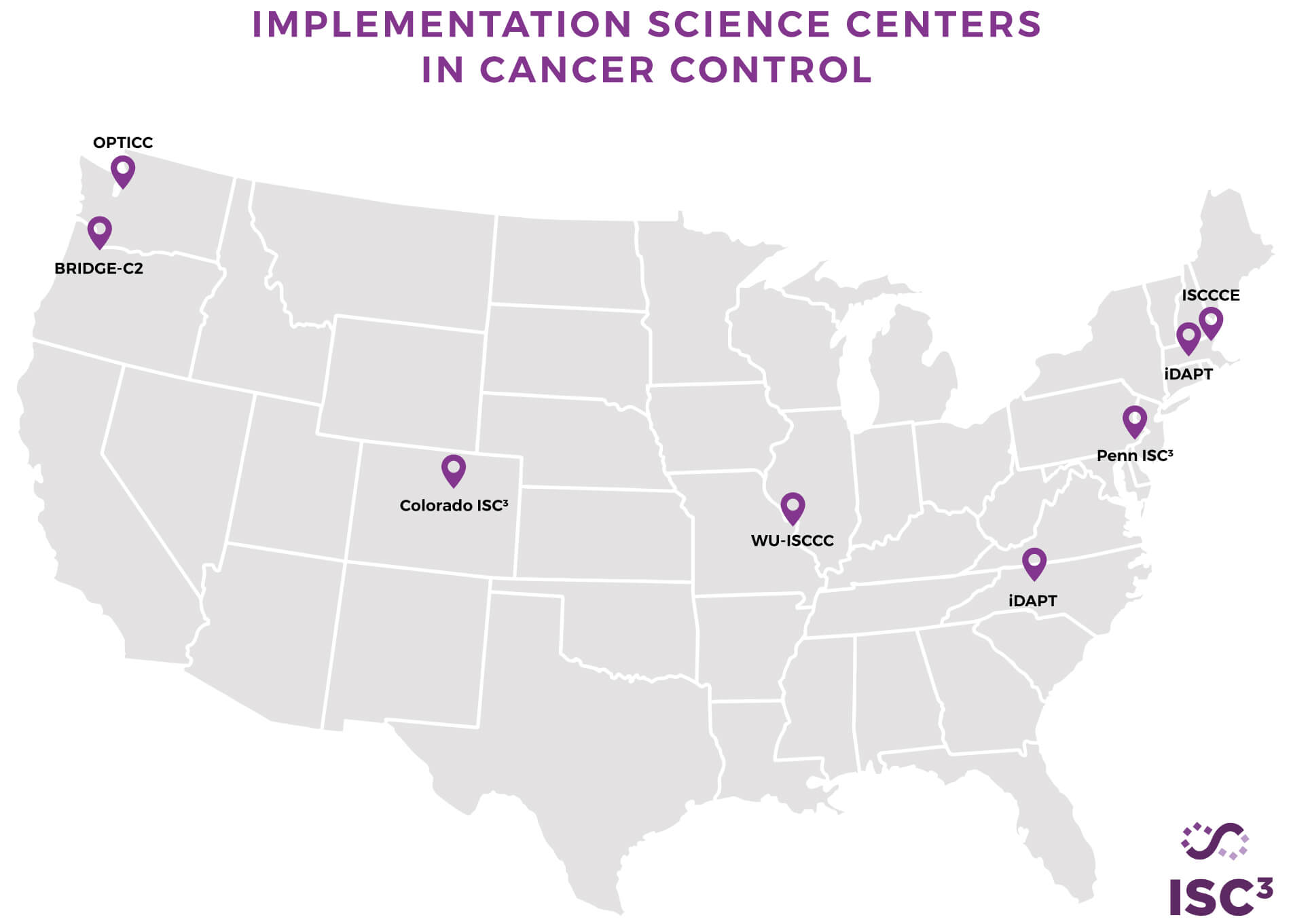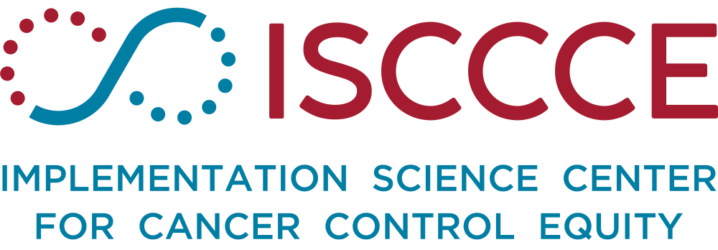The Implementation Science Centers in Cancer Control (ISC3) Program supports the rapid development, testing, and refinement of innovative approaches to implement a range of evidence-based cancer control interventions. ISCCCE is one of seven centers funded by the National Cancer Institute’s Cancer Moonshot initiative, which collectively provide leadership for an Implementation Science consortium across Cancer Moonshot initiatives.

Harvard T.H. Chan School of Public Health: The Implementation Science Center for Cancer Control Equity (ISCCCE) at Harvard is improving community health by integrating health equity and implementation science for evidence-based cancer control. MPI: Karen Emmons & Elsie Taveras
Oregon Health & Science University: The Building Research in Implementation and Dissemination to close Gaps and Achieve Equity in Cancer Control (BRIDGE-C2) Center will focus on advancing implementation science to improve cancer screening and prevention in underserved populations. PI: Jennifer DeVoe
University of Colorado School of Medicine: Colorado ISC3 will focus on pragmatic approaches to assess and enhance the value of cancer prevention and control in rural primary care. PI: Russell Glasgow
University of Washington: The Optimizing Implementation in Cancer Control (OPTICC) Center will develop, test, and refine innovative methods for optimizing the implementation of evidence-based interventions in cancer control. MPI: Bryan Weiner, Margaret Hannon, & Cara Lewis
Wake Forest School of Medicine: Implementation and Informatics – Developing Adaptable Processes and Technologies for Cancer Control (iDAPT) will advance the field of implementation science by using technologies to support rapid cycle and real-time deployment and testing of implementation processes and adaptations within cancer control. MPI: Kristie Long Foley, Thomas Houston, & Sarah Cutrona
Washington University in St. Louis: The WU-ISCCC will build a rigorous, scientific evidence base for rapid-cycle implementation research to increase the reach, external validity, and sustainability of effective cancer control interventions. The Center’s goal and activities capture three distinct features: (1) a focus on elimination of cancer disparities; (2) the need for rapid-cycle studies; and (3) the use of systems science approaches to enhance methods and outcomes in implementation science. MPI: Ross Brownson & Graham Colditz
University of Pennsylvania: The Penn ISC3 will apply insights from behavioral economics to rapidly accelerate the pace at which evidence-based practices for cancer care are deployed and to which they are delivered equitably, thereby increasing their reach and impact on the health of individuals with cancer. MPI: Justin Bekelman, Rinad Beidas, & Robert Schnoll
